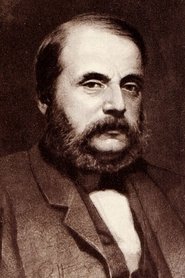 Ivan Goncharov
Simbirsk, Russian Empire [now Ulyanovsk, Russian Federation]
Ivan Goncharov
Simbirsk, Russian Empire [now Ulyanovsk, Russian Federation]

Ivan Alexandrovich Goncharov (1812–1891) was a Russian novelist best known for his novels 'The Same Old Story' (1847), 'Oblomov' (1859), and 'The Precipice' (1869, also translated as 'Malinovka Heights'). He also worked as a literary and theatre critic. Towards the end of his life Goncharov wrote a memoir called An Uncommon Story, in which he accused his literary rivals, first and foremost Ivan Turgenev, of having plagiarized his works and prevented him from achieving European fame.
His novel 'Oblomov' caused much discussion in the Russian press, introduced another new term, oblomovshchina, to the literary lexicon and is regarded as a Russian classic. In his essay 'What Is Oblomovshchina?' Nikolay Dobrolyubov provided an ideological background for the type of Russia's "new man" exposed by Goncharov. The critic argued that, while several famous classic Russian literary characters – Onegin, Pechorin, and Rudin – bore symptoms of the "Oblomov malaise", for the first time one single feature, that of social apathy, a self-destructive kind of laziness and unwillingness to even try and lift the burden of all-pervading inertia, had been brought to the fore and subjected to a thorough analysis.
















